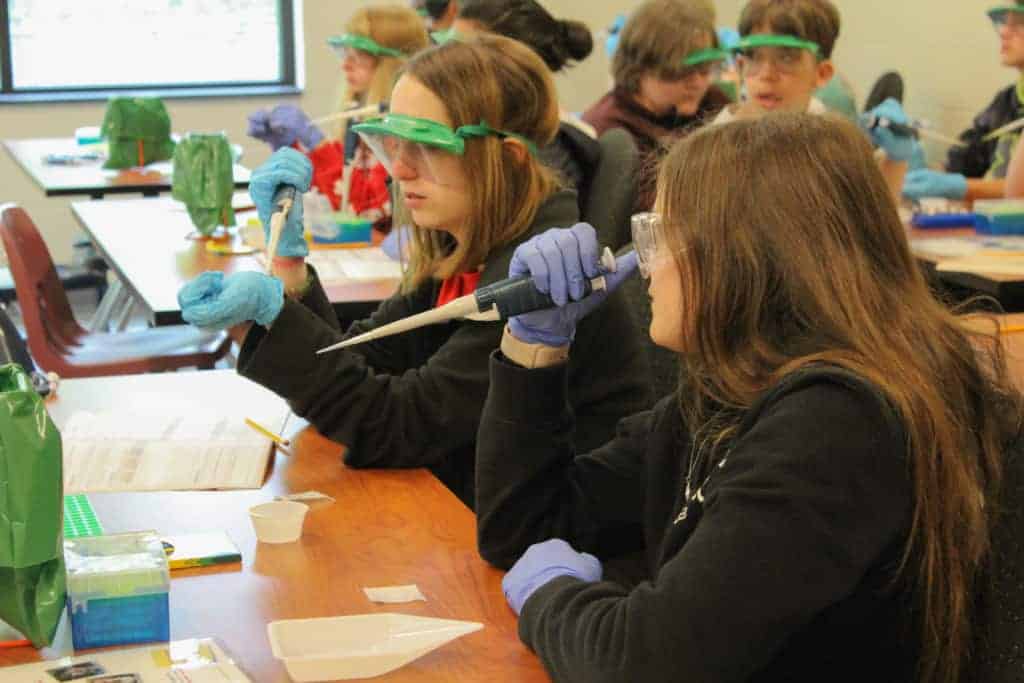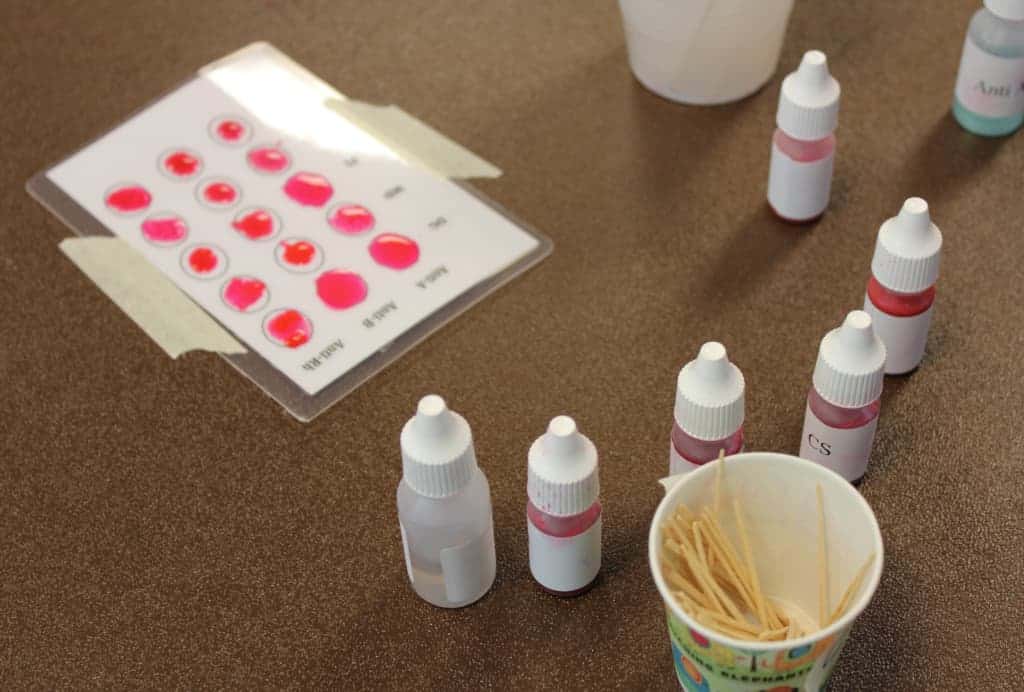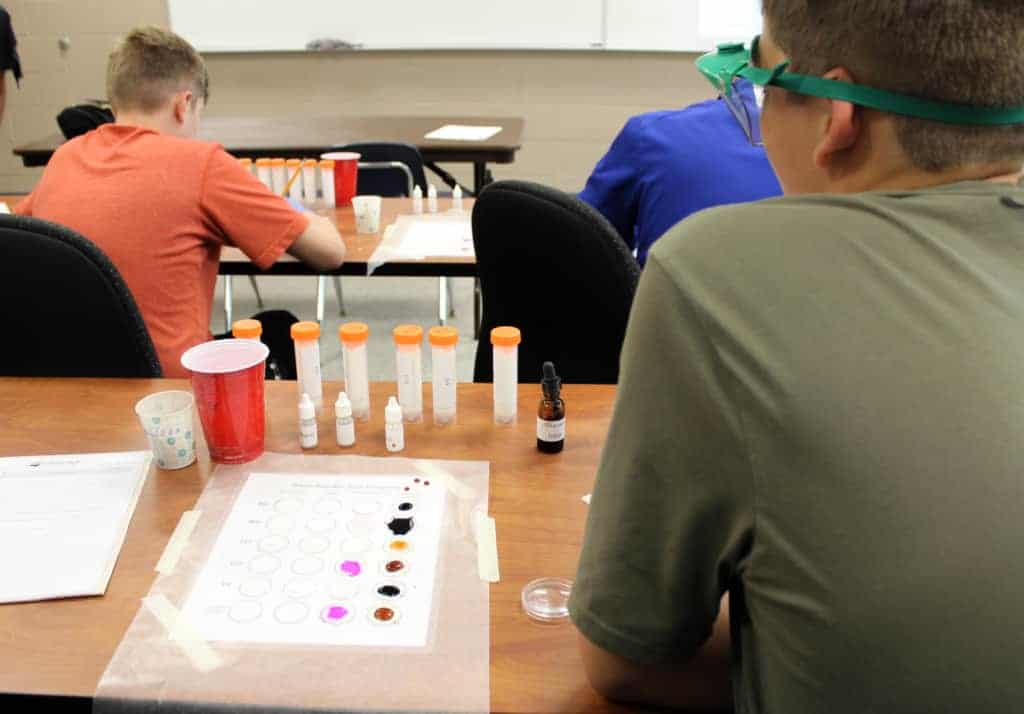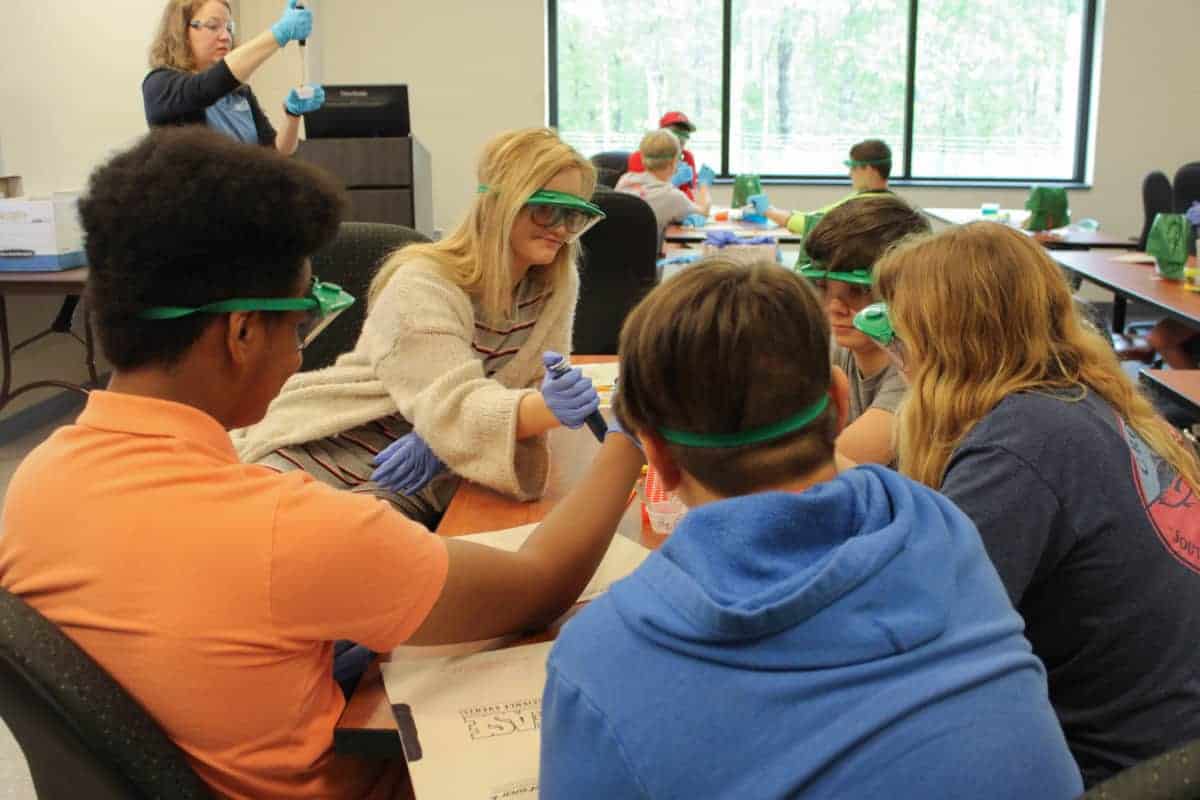“I feel like it’s Eddie,” said Dawson Bartlett, an eighth grader at West McDowell Middle School. He had spent the morning, along with 100 of his classmates, at McDowell Technical Community College poring over evidence from a simulated crime scene.
At the start of the investigation, students watched a video of a crime scene scenario where, during filming of a TV show, one of the camera operators goes missing. The rest of the morning, students moved from classroom to classroom in different stations to test crime scene evidence, including an ink sample, a white powder, a blood stain, dark fiber, and a shoe print — all to figure out the culprit.
“In the lab right now, we are testing blood to find a match with the suspects and the crime scene,” explained student Hannah Killough. In the lab, students ran a simulated experiment to determine blood types (using fake blood) and worked to match samples to characters involved in the crime scene.

Eighth grader Caroline Lanier said it was also a way to test hypotheses on who the culprit was.
“Seeing who you thought it was in the beginning,” Lanier explained, “and then after doing all the different labs, seeing if your opinions changed or not, and what everyone else’s opinion was.”
The CSI-style experiment was hosted at McDowell Tech in late April in partnership with the NC BioNetwork as part of their EASE (Effective and Authentic Science Events) programming. The NC BioNetwork is funded by the NC Community College System and offers life sciences workshops at the state’s 58 community colleges. This is the third year McDowell Tech hosted the EASE program with the help of Beverly Watts, MTCC’s director of developmental studies and quality enhancement. The program has also been popular for other community colleges, including Isothermal, Wayne, Pitt, Richmond, and Brunswick.
“At the end of the day, what we want students to experience is success with science,” said Tanya McGhee, senior director of STEM outreach at NC BioNetwork.

Through the forensics-style experiment, students learn to document evidence, work collaboratively in teams, use critical thinking, follow directions — especially around safety — and use the scientific method. By taking on the crime-solving activity, students are also exposed to a variety of career possibilities. For example, McGhee said that students may find that they don’t like the lab work, but they like the idea of being an evidence collector, or working in crime scene photography or forensic accounting.
“I think it’s a good idea because it gives them a reality-type thing to put the science with,” said Tabitha Buff, an accounting student at McDowell Tech who volunteered to help with the EASE student activities. “I think it gives them an all-around approach to it.”
For students, the experiments were not only in the new setting of the community college, but also something different than what they might be able to do during a regular school day.
“I mean the activities here definitely put forensics [into view], like you can see yourself doing that now,” Killough said. “I just think it’s fun coming out here, doing something different from what you do every day.”

Before returning to their middle school, students were given an interest profile survey to help them decide what work they like or don’t like, along with a list of bioscience community college programs, from biotechnology to food service technology to medical laboratory technology. The next day, McDowell Tech hosted another 100 students, this time from East McDowell Middle School, for their own round of crime scene investigation.
“My main goal is providing these kids with a fun day that was memorable,” McGhee said — because the inspiration was important. “These life science industries need scientists.”



